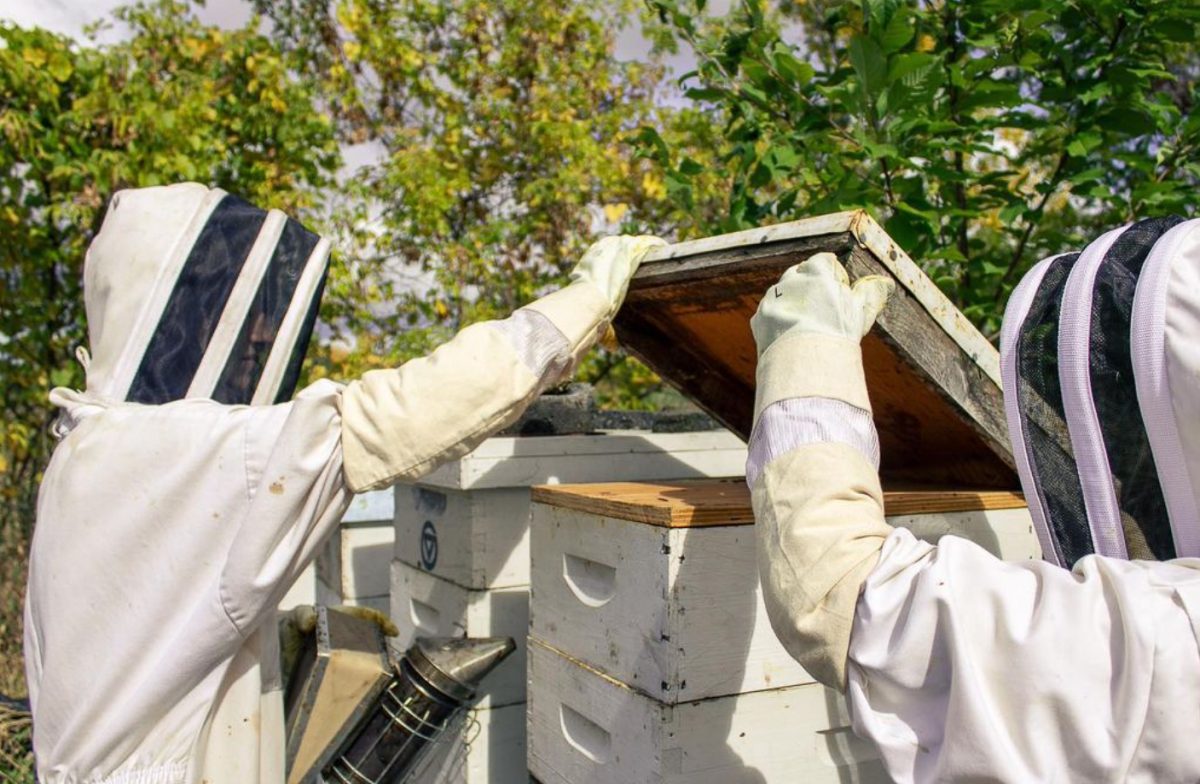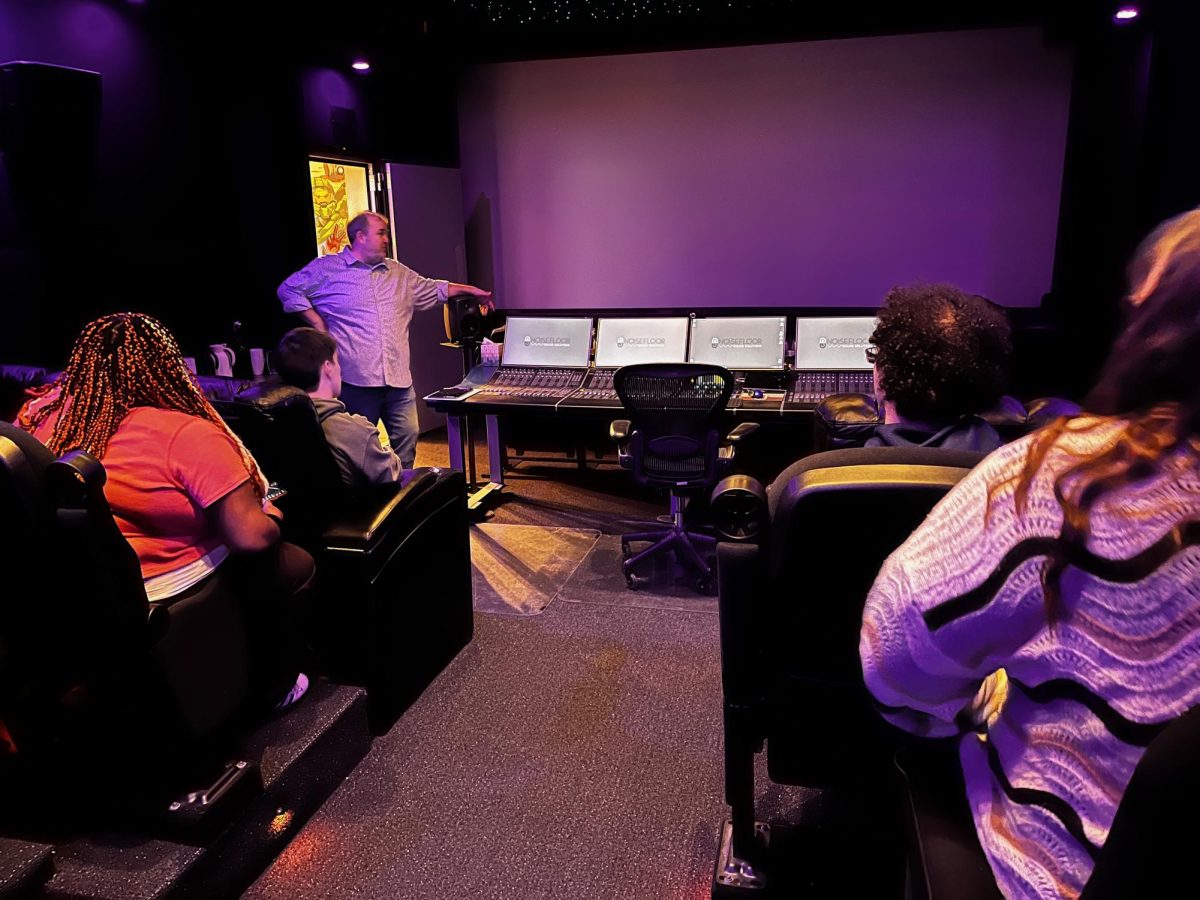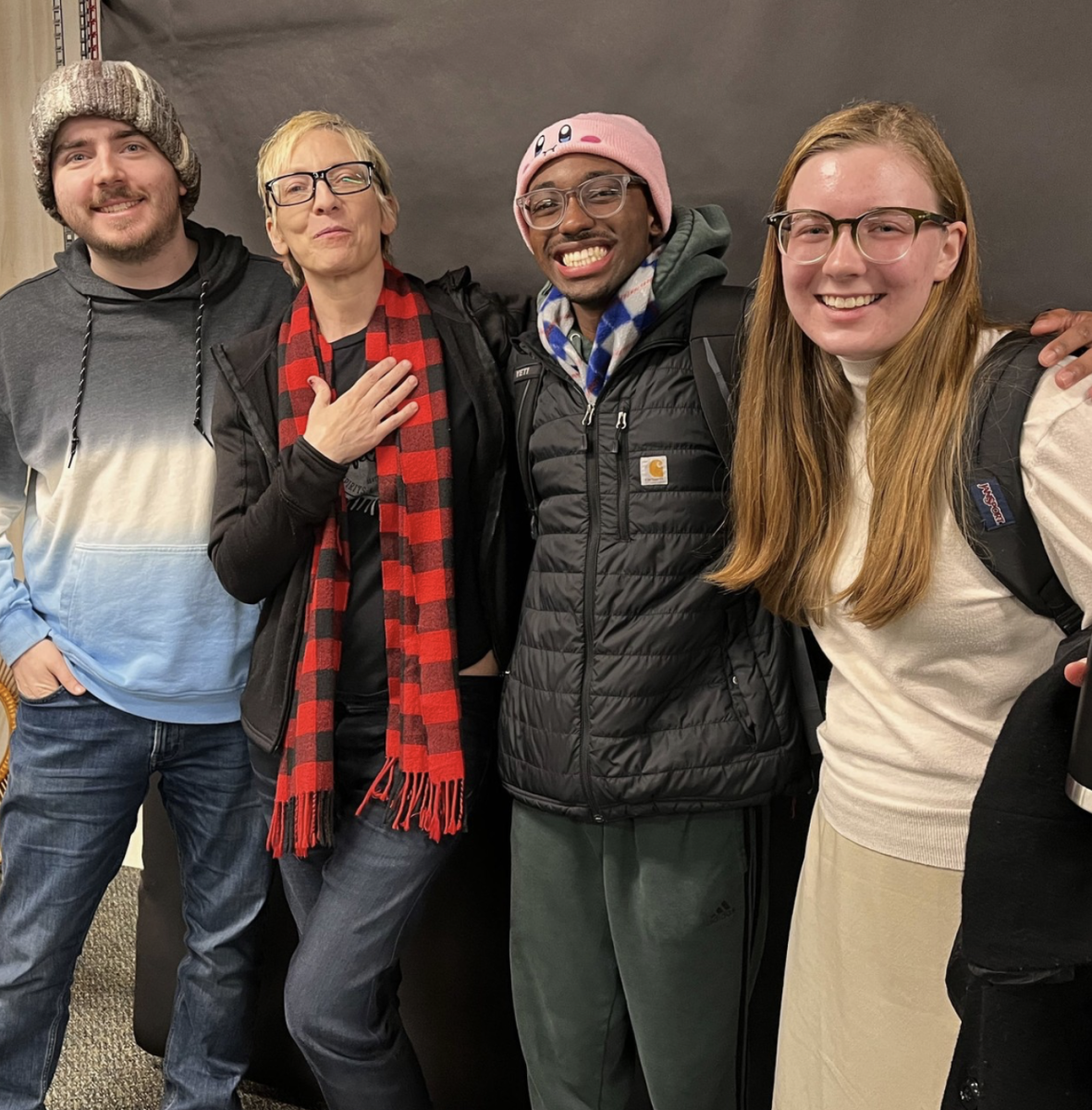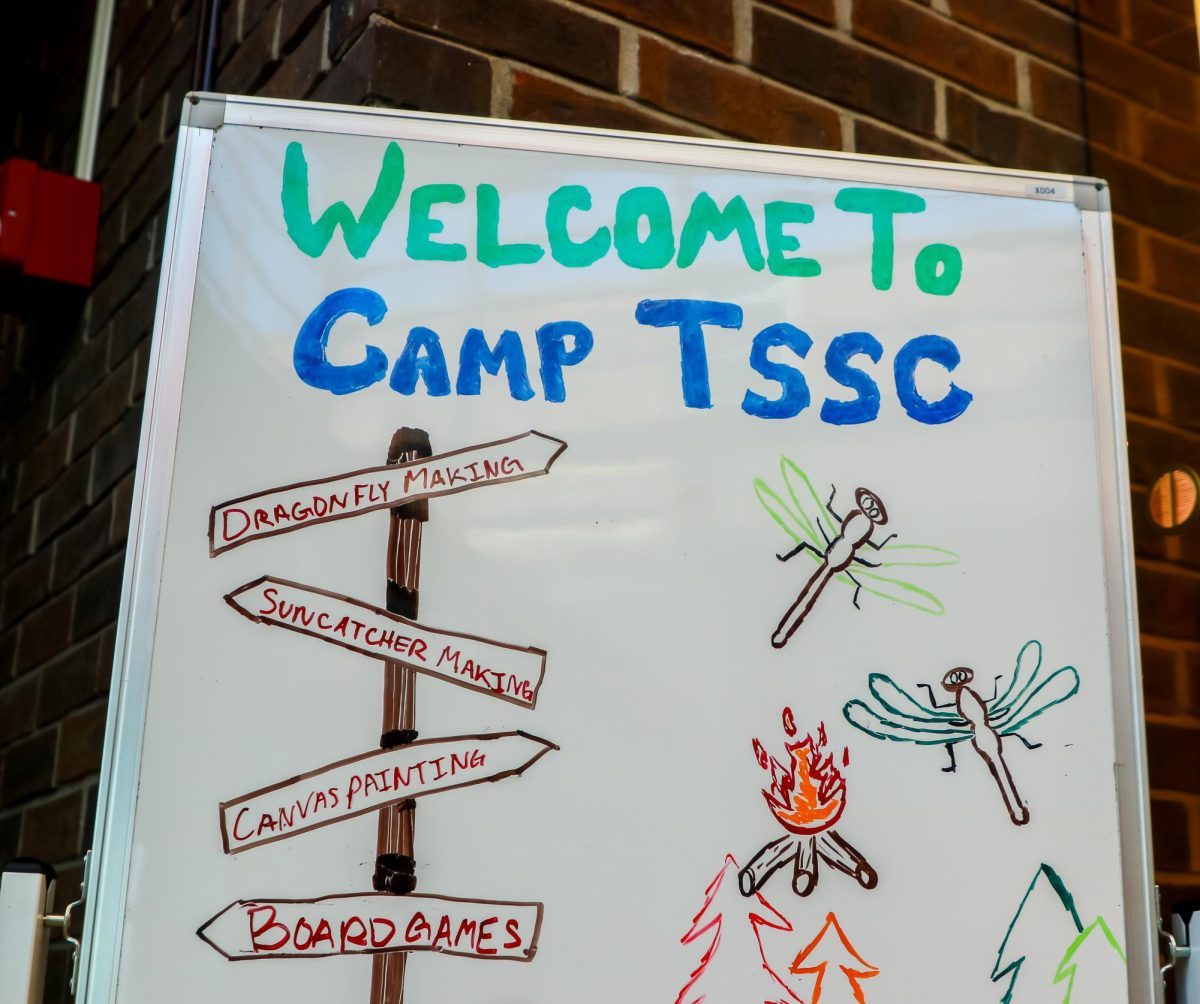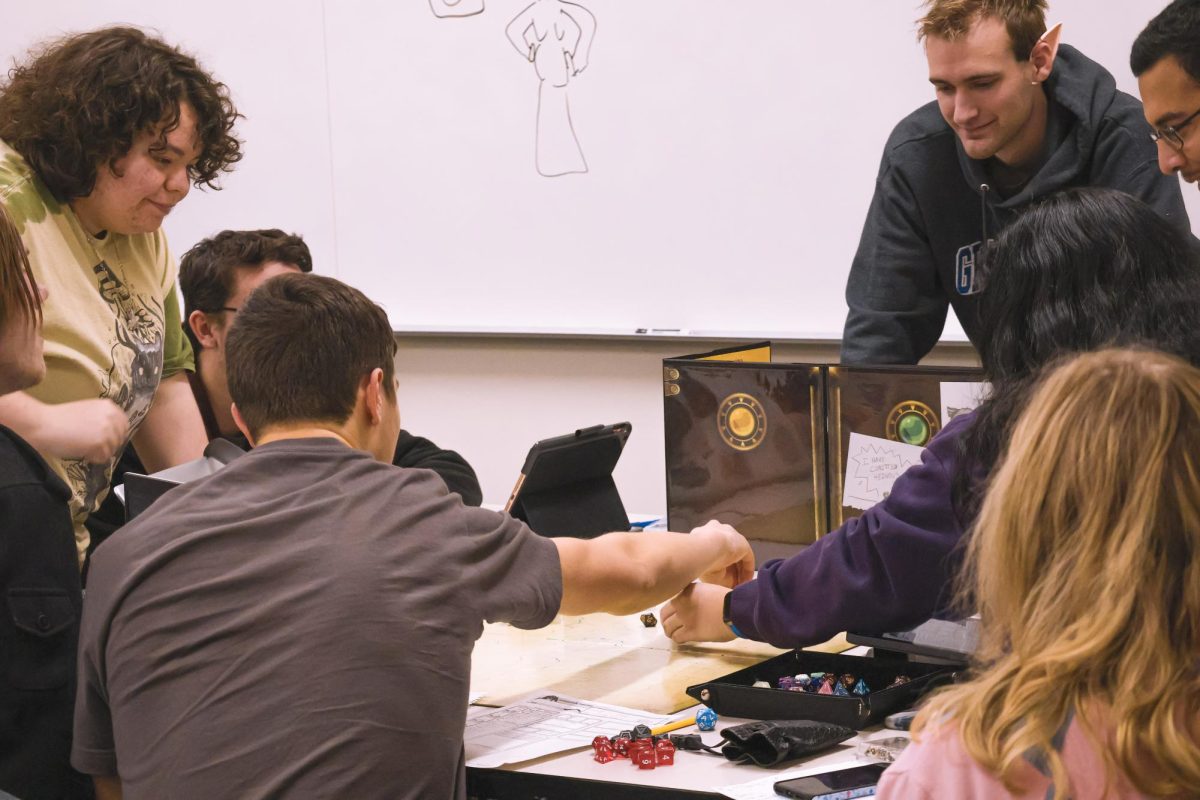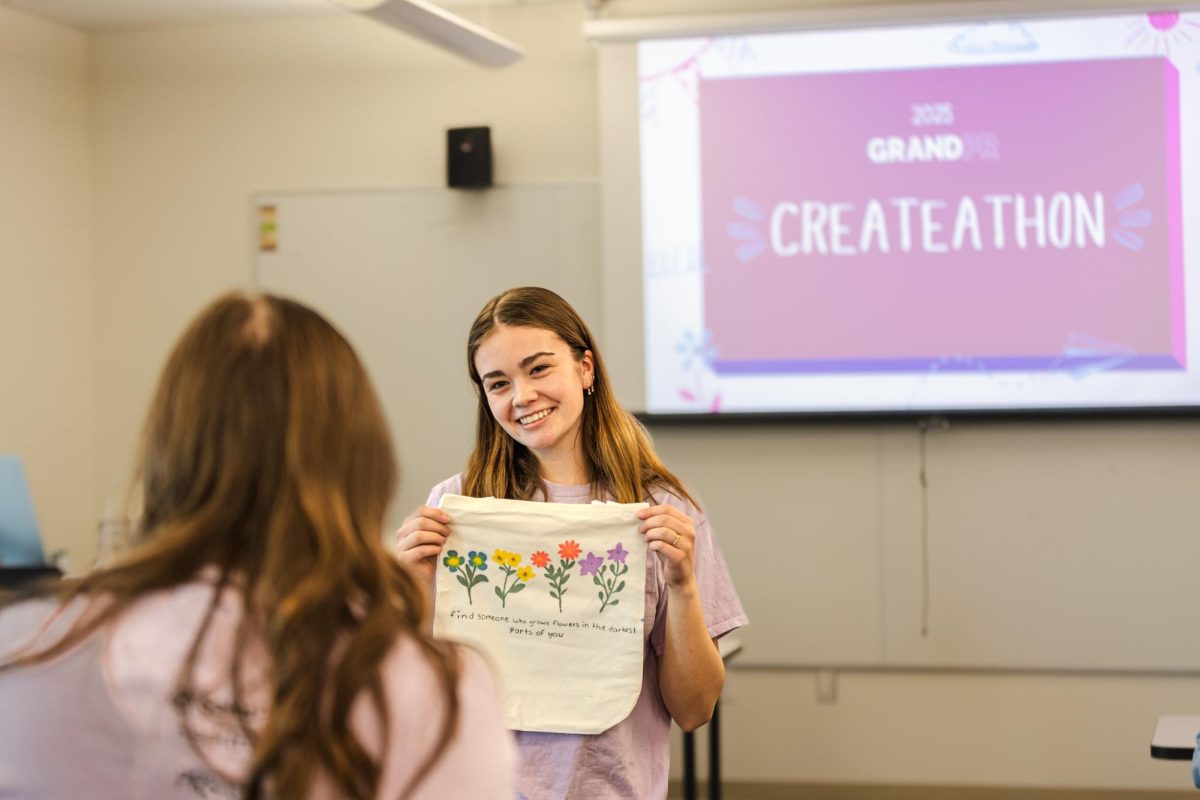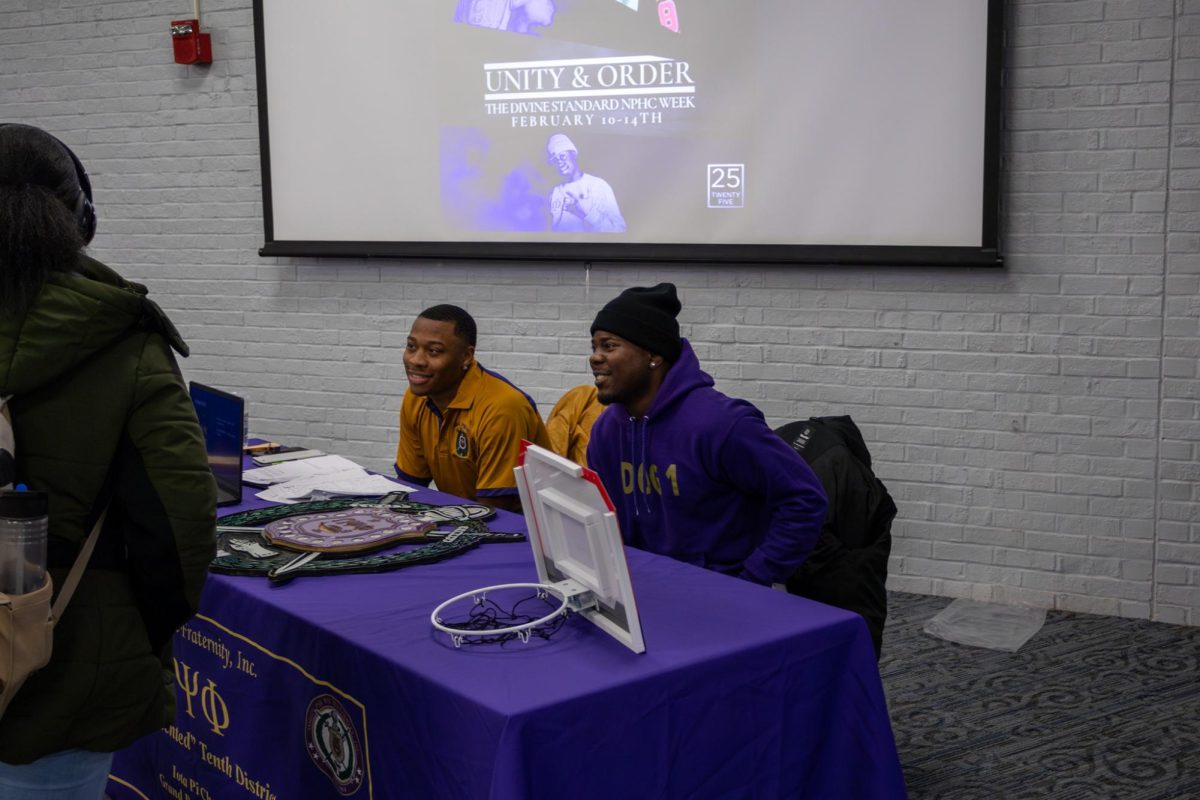The Beekeepers club at Grand Valley State University strives to protect the local honeybee population and educate people about honeybees. Collaborating with the Sustainable Agriculture Project (SAP), the group is able to harvest honey through hands-on experiences at the SAP facilities’ hives.
Sustainability and bee awareness are two focal points for the group, and the club strives to make opportunities for students to make a difference attainable on campus and in the local area.
“The purpose of the Beekeepers club is to spread awareness of the importance of pollinators while supporting Grand Valley’s honeybee population,” said Vivian Gaskin, Beekeepers club president.
According to the United States Department of Agriculture, honeybees pollinate over $15 billion in crops, spanning across 130 different types of produce annually. With their endangered status, it is important to the club that they spread awareness about how to be conscious of the bees’ contribution to the ecosystem.
“Pollinators help to support healthy ecosystems,” Gaskin said. “We promote pollinator-friendly practices such as planting native gardens and limiting use of pesticides.”
The club bottles honey from the hives they maintain and makes lip balm to raise money and awareness for their cause. One of Gaskin’s favorite events has been bottling honey for sale. Gaskin said she finds satisfaction in seeing how many bottles the club is able to produce.
“I find this work to be important because it shows students that making a positive impact on their local environment doesn’t have to be complicated,” Gaskin said. “By bringing our products to campus, we are increasing awareness of the Sustainable Agriculture Project and getting more people interested in sustainability.”
With the money they make from sales, the club makes an effort to help give back to the bees.
“Sales from the honey and lip balm go back into caring for the hives, which in turn benefits our local ecosystem,” Gaskin said.
Students who are not interested in being hands-on with the bees have other opportunities to be involved through educational and promotional aspects. Students who do want to be hands-on go through many precautionary measures when caring for the bees such as wearing protective suits and using a bee smoker to keep the bees calm.
“There are certain things we have to do to avoid upsetting the bees, but the chances of being stung are very low,” Gaskin said.
Holding bee-related events can be more difficult in the winter months, so instead the club meets and hosts different educational programs. One of these programs includes examining bee specimens under microscopes.
In the warmer weather months, the club has more opportunities to visit the hives and harvest honey. They also do club hikes and hammocking to accommodate those who do not wish to be as hands-on. Gaskin said the club is working to coordinate events for this spring.
“This spring, we are looking forward to making seed bombs, revisiting the hives and having some pop-up markets,” Gaskin said.
Gaskin had no previous experience of working with bees until an internship at the SAP, where she had the opportunity to do so and became fascinated. Shortly after, she got involved with the club. She was inspired to take on a leadership role after seeing the club’s mission and growth.
“I loved seeing the growth in members last year and (I) had a lot of new ideas that I wanted to bring to the club as it continues to grow,” Gaskin said. “I find my work as the leader of the club to be very fulfilling. It allows me the freedom to be creative and make a positive impact on the community.”





